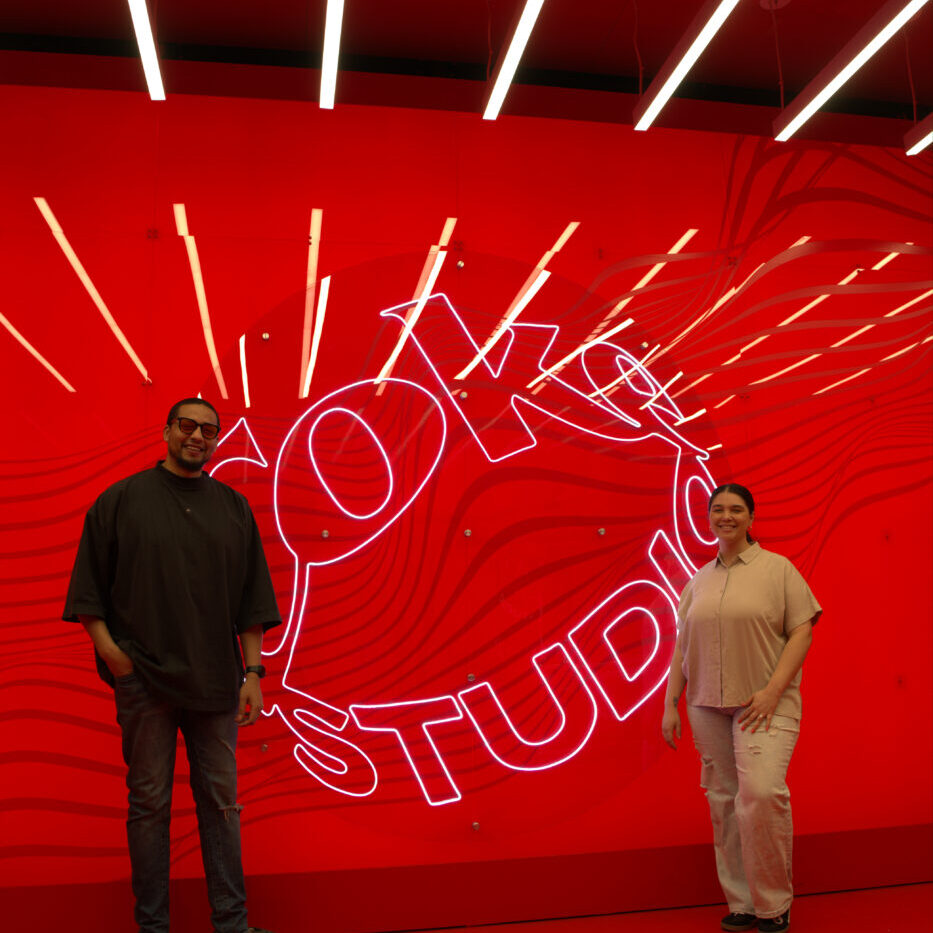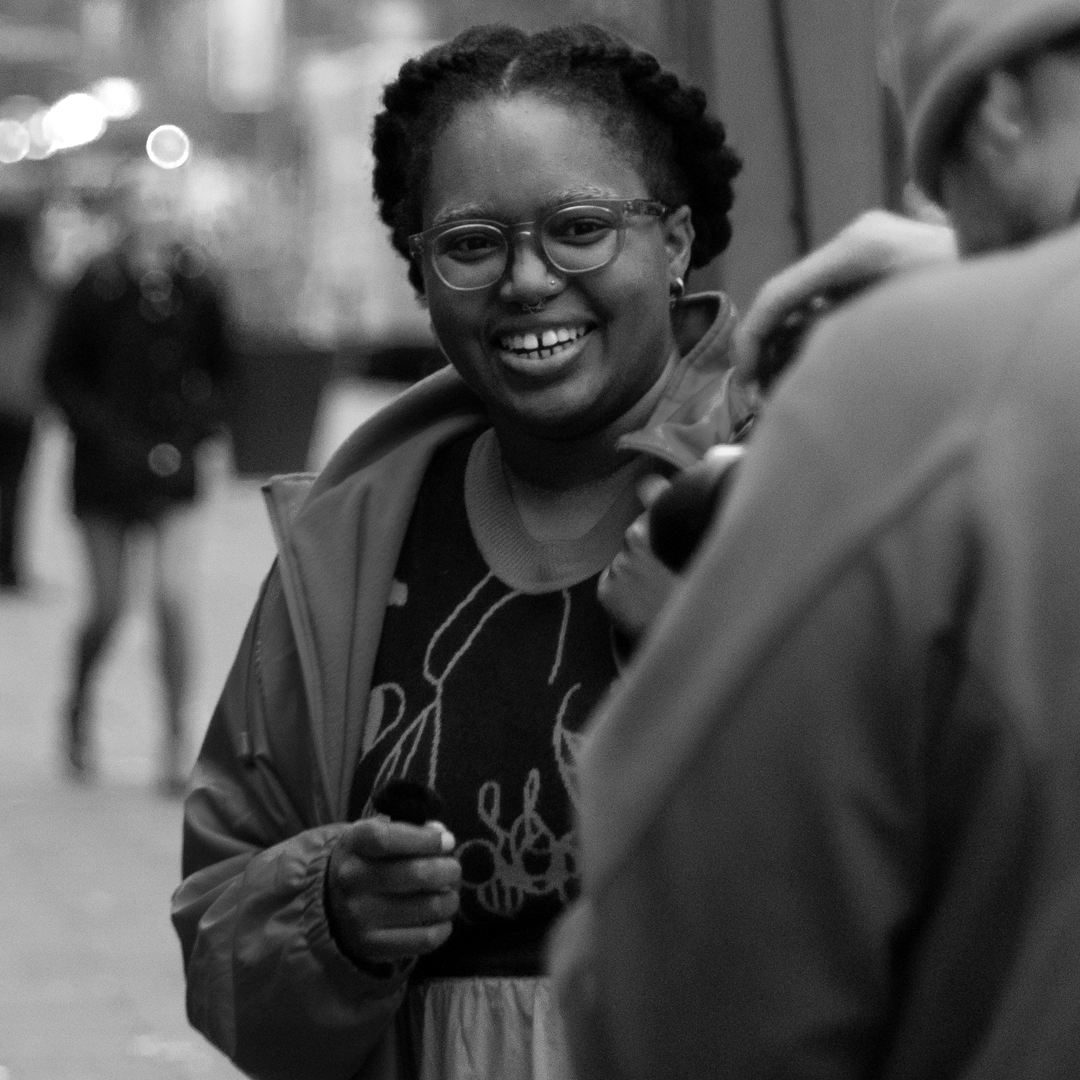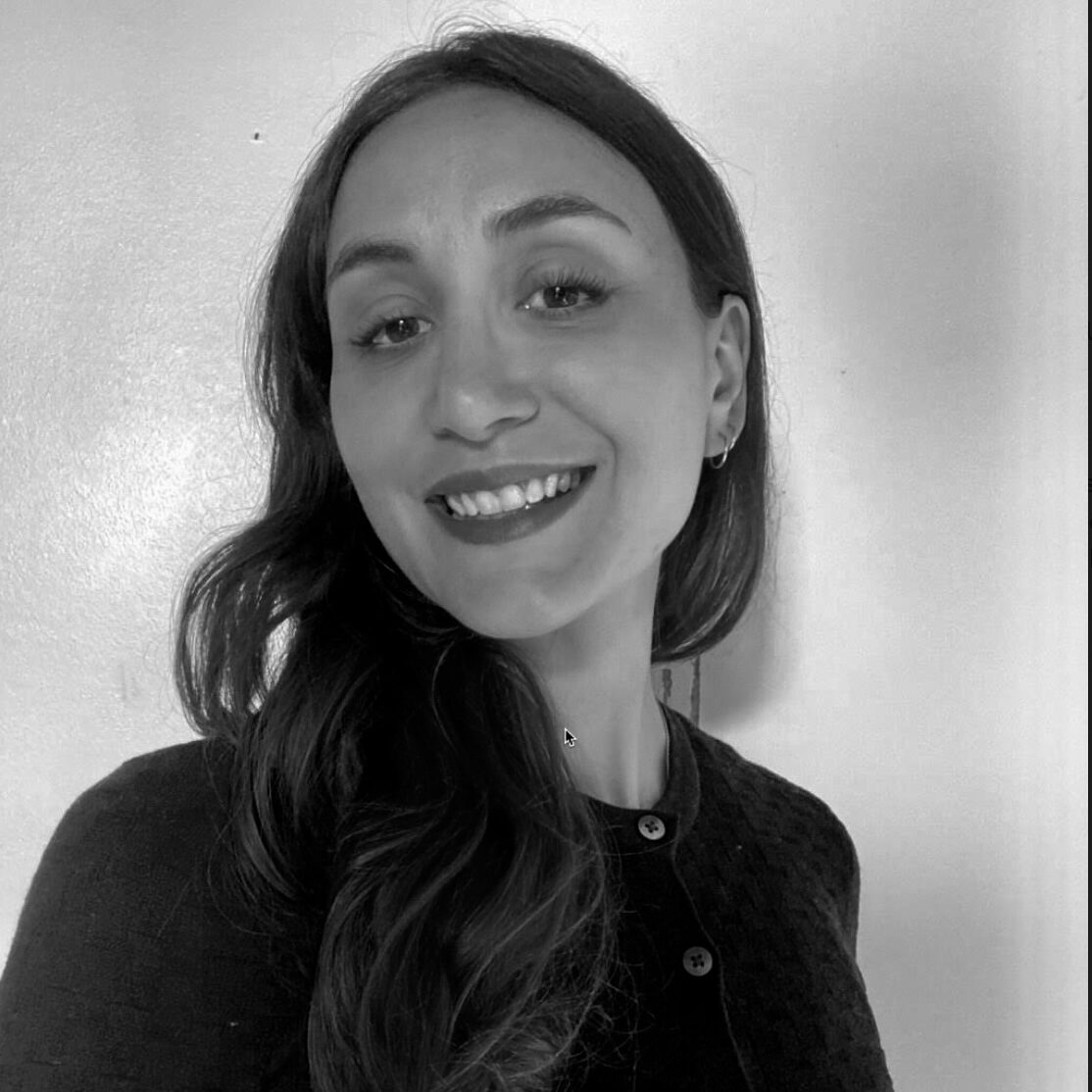THE GREEN LINE'S
CHANGEMAKER INTERVIEW
How to nurture a collaborative music scene: Lessons from Beatcave
For our July 2025 Changemaker interview, we spoke with Beatcave's Jerome Ferguson and Amber Oosthuyzen about how they nurture an intentional community for Torontonian artists.

Jerome Ferguson and Amber Oosthuyzen, co-founders of Beatcave standing in front of a Coke Studio sign.
📸: Provided by Beatcave.

Adele Lukusa
Graduate of Toronto Metropolitan University and Kitchener native living in Riverdale. Enamoured with all things arts and culture. Journalist and avid zinester who loves criticism, but loves iced tea more.

Mary Newman
British-Canadian journalist with a decade’s experience producing for the BBC and CBC. Hails from Robin Hood country so naturally hates wealth inequality and loves organized labour. Now resides in the dog paradise of Roncesvalles.
July 10, 2025
If you thought building community was hard, try to do that in the city’s rap and R&B scene.
For those not privy to it, there’s a real crab-in-a-bucket mentality that’s pervasive in this space. Whether it’s because of gatekeeping, cliquey boys' clubs or clout chasing, it’s harder for modern-day artists to get their foot in the door — let alone connect with their peers.
That’s where community-driven organization Beatcave comes in. Thanks to co-founders Jerome Ferguson and Amber Oosthuyzen, artists, producers and songwriters in various genres can come out of their basements and connect with like-minded individuals.
We spoke to Jerome and Amber about how this organization fosters intentional community and encourages collaboration and networking.
Jerome, how did Beatcave come to be?
It started in July 2019, so it’s been six years now. It mainly started for producers — to bring them together to accomplish great things and to provide them with constructive feedback. We held seven producer-focused events and then, we moved to providing opportunities for artists, engineers and all kinds of music creatives. We wanted to build that infrastructure to nurture artists because it's not really here in Canada. And we’ve been successful. Producers and artists who’ve participated in our programs have gone on to be signed and win Juno Awards.
Amber, you’re an artist. How did you find your way into Beatcave?
I moved to Toronto in 2016 with the goal to be an artist. I was in Honey Jam [a non-profit artist development program] and I was a contestant on The Launch.
Beatcave started the year after I was on The Launch. That's when I realized that there weren't a lot of options for mobility for Canadian artists. I was running into walls as an artist and I was stuck in this kind of walking machine of the Canadian music industry.
So when we started Beatcave, I was like, it makes sense to create some kind of mobility for artists. I transitioned more into the business side as of 2020. I'm full-time at Live Nation right now. My music career took a little bit of a backseat, but I think [that’s] because the dream was evolving.
How do you continue to have that vibe that makes people want to come back, invest and actually connect with one another?
Amber: One of the things we said from the very beginning was: “Leave your ego at the door.”
I think that really set the tone for our community in a lot of ways. It’s about commitment over competition.
When you're competing, you're not necessarily getting the best work. You're just trying to be the best.
It's not about competition. It's about community and building community. We've done our best to support other community initiatives that are also coming up in Toronto. That's the only way we can keep growing — if we're all willing to collaborate to a certain extent and help the vision grow. At the end of the day, the vision is to build capacity in the Canadian music economy.
In what ways do you think local artists could be better supported?
Amber: To be honest, the arts have been undervalued for so many years because consumers think they should be able to access art for free. There's a lot of grant funding, but that means artists are expected to showcase for free.
We haven't really created a desire and a hunger to spend money on these things and to see that as valuable. I think that has greatly weakened our music economy.
I don’t want to tear down the grant system because it does a lot to nurture artists who otherwise wouldn't have the opportunity to come to light. But at the end of the day, if we're not making products that are actually economically viable, there won’t be growth in the industry.
| What's one tangible way people can support the work that you do?
Amber: On July 26, we'll have a multidisciplinary art show at the Nia Centre for the Arts and we're going to showcase our latest songs. Whether you’re a music lover, artist or producer, come out to that! You can also follow us on Instagram @beatcave.ca or on X @Beatcave_. |
||
This interview was edited and condensed for clarity.
Fact-Check Yourself
Sources and
further reading
Don't take our word for it —
check our sources for yourself.
Care about our city, but don't know how to make it better? Sign up for simple, step-by-step guides to solving problems in your neighbourhood — one small action at a time.